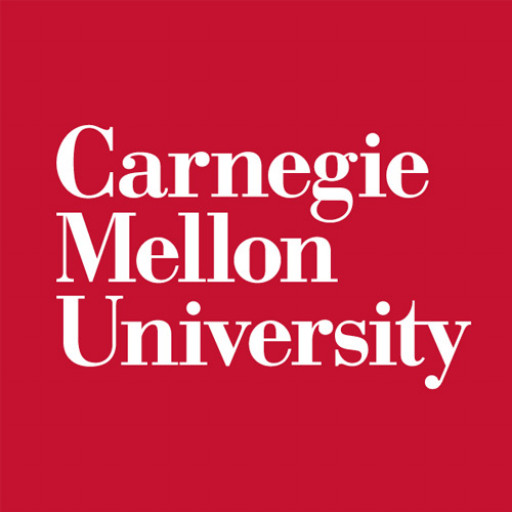Photos of university / #oxford_uni
The MSc in Public Policy at the University of Oxford is a rigorous and highly regarded graduate programme designed to equip students with the analytical skills, theoretical knowledge, and practical insights necessary to understand and influence the complex world of public policy. This interdisciplinary course attracts students from diverse backgrounds, including political science, economics, sociology, law, and international relations, fostering a vibrant academic community committed to impactful policy work. Throughout the programme, students engage with core issues such as governance, public administration, policy analysis, and ethical considerations, gaining a comprehensive understanding of how policies are formulated, implemented, and evaluated across different sectors and jurisdictions. The curriculum combines quantitative and qualitative methods, enabling students to assess policy options critically and develop evidence-based solutions to real-world problems. The programme emphasizes both theoretical frameworks and practical applications, often incorporating case studies, debates, and practical exercises that simulate policymaking environments. Students benefit from exposure to leading scholars and practitioners through seminars, workshops, and guest lectures, which enhance their understanding of contemporary policy challenges. The MSc in Public Policy at Oxford also offers excellent networking opportunities with alumni, policymakers, and industry experts, facilitating career development and collaboration in public service and related fields. Graduates of the programme are well-prepared for roles in government agencies, international organizations, NGOs, think tanks, consulting firms, and academic research, where they can contribute to shaping effective, equitable, and sustainable policies worldwide. With its distinguished faculty, rigorous curriculum, and strong focus on practical impact, the MSc in Public Policy provides an outstanding foundation for those aspiring to make a difference in the public sector or pursue further academic research in policymaking and governance.
The DPhil is a research degree that is rooted in and relevant to current policy challenges, over the course of which you will have the chance to meet and interact with leading public policy practitioners. You will work in an interdisciplinary environment where issues, rather than the nuances of debates within specific academic disciplines, take priority in the formation and execution of research questions and strategies.
Although this degree has a focus on applied research, the academic demands of the programme are high and you must have the academic background and skills needed to undertake your research successfully. The Blavatnik School of Government (BSG) encourages an interdisciplinary environment, but you will be expected to anchor your studies in a core academic discipline.
You will be expected to focus your research on practical challenges facing a range of different governments and publicly-oriented agencies. As well as developing your academic expertise, you will learn how to communicate your findings and analysis effectively so as to have real impact on government and public policy development throughout the world.
You will benefit from a DPhil-specific set of seminars and you will be given ample opportunities to present your work in the department, and to develop your research ideas and proposals with the advice and support of your peers.
Applicants are normally expected to be predicted or have achieved a first-class or strong upper second-class undergraduate degree with honours (or equivalent international qualifications), as a minimum, in any subject. However, entrance is very competitive and most successful applicants have a first-class degree or equivalent.
For applicants with a degree from the USA, the minimum GPA sought is 3.8 out of 4.0.
Applicants are also expected to have completed a research master’s degree in a relevant subject, which includes methods training appropriate to the research they propose to conduct. Applicants should have a mark of at least 70 per cent or an equivalent level of distinction for both the thesis and overall degree in their master's qualification. The master’s course must be completed and a final transcript available prior to the start of the DPhil.
If you hold non-UK qualifications and wish to check how your qualifications match these requirements, you can contact the National Recognition Information Centre for the United Kingdom (UK NARIC).
It is strongly recommended that you also submit scores from a standardised test such as the GRE, GMAT or LSAT, though these are not required to complete your application.
- Official transcript(s)
- CV/résumé
- Statement of purpose/personal statement:Statement of up to 1,000 words and proposal of up to 2,500 words
- Written work:Two essays of 2,000 words each
- References/letters of recommendation:Three overall, generally academic
ENGLISH LANGUAGE REQUIREMENTS
Higher level
|
Test |
Standard level scores |
Higher level scores |
||
|
IELTS Academic |
7.0 | Minimum 6.5 per component | 7.5 | Minimum 7.0 per component |
|
TOEFL iBT |
100 |
Minimum component scores:
|
110 |
Minimum component scores:
|
| Cambridge Certificate of Proficiency in English (CPE) | 185 |
Minimum 176 per component |
191 |
Minimum 185 per component |
| Cambridge Certificate of Advanced English (CAE) | 185 |
Minimum 176 per component |
191 |
Minimum 185 per component |
- Global Education
- Hill Foundation Scholarships
- A number of Research Council awards are available each year from the Economic and Social Research Council (ESRC), the Natural Environment Research Council (NERC), and Arts and Humanities Research Council (AHRC).
The Master of Public Policy (MPP) at the University of Oxford is a highly regarded postgraduate programme designed to equip students with the analytical skills and practical knowledge necessary to address complex public policy issues. The programme is typically offered through the Blavatnik School of Government at Oxford, which is dedicated to training future leaders in public service and policy-making. The curriculum combines rigorous academic training with real-world application, emphasizing the development of critical thinking, quantitative and qualitative analysis, and strategic decision-making. Students engage with a diverse range of topics including governance, economics, political science, international development, and public management. The programme often encourages interdisciplinary approaches, drawing on numerous fields to craft innovative solutions for contemporary policy challenges. Students benefit from access to Oxford’s extensive resources, including its global network of policymakers, academics, and practitioners. The programme usually lasts one year full-time and admits students from various backgrounds, fostering a vibrant international community. Admission criteria typically include academic excellence, relevant work experience, and a strong motivation for public service. Graduates of the Oxford MPP have gone on to influential roles in government, NGOs, international organizations, and the private sector, contributing significantly to public policy reform and implementation worldwide. The programme’s aim is to develop ethical and effective policy leaders capable of making evidence-based decisions that promote social well-being and sustainable development.








